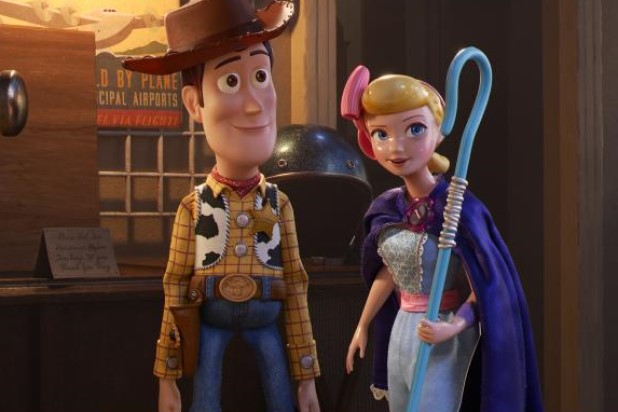This is a post concerning what bothered me about Toy Story 4. Spoilers follow.
As a fan of the first three Toy Story films, I could hardly have been more disappointed by the fourth when I saw it on the fourth, of July. That is, I could have been more disappointed, but not by much.
Disenchantment began with the tedious and repetititve opening segment, revolving around Woody essentially babysitting the new character Forky. Forky’s emergence itself didn’t bother me — his creation by human child Bonnie in a moment of fear and sadness at starting Kindergarten was the saving grace of the film’s first opening act. But then we are steered away from Bonnie-Forky to Woody-Forky, an Odd Couple pairing that just doesn’t work. Forky, a poor man’s Olaf (from Frozen), has no chemistry with Woody. It’s far more annoying than funny.
Now, that’s something of a subjective criticism, and to be fair, that isn’t the movie’s main emotional story. Instead, Toy Story 4 centers around Woody’s feeling of abandonment by Bonnie. Somehow, this was considered worthy of telling, even though we have no emotional investment in Woody’s relationship with Bonnie, the playmate-come-lately from Toy Story 3, and even though the franchise has already dealt cathartically with Woody’s separation from his true human companion, Andy.
As Toy Story 4 progresses, the film’s mainstay toy characters are almost completely sidelined. Buzz is relegated to a truly supporting role with occasional (welcome) comic relief, Jessie is reduced to cheerleader/alarmist and the others basically have nothing to do at all, save for an oddball scene near the climax making the family camper malfunction. Taking their place is a mostly new set of toys, led by Bo Peep, who had a limited role in the previous movies. Bo Peep’s character is strong and likeable — she’s a leader and individualist with a distinct point of view. The others have their moments but are a mixed bag, with not nearly enough storytelling appeal.
But the problem remains that Woody’s mission is to reunite with Bonnie. It’s fair that Woody feels his primary job in life is to be available for his human, but again, we’ve been down this road before. What’s interesting — but essentially unexplored — is that this is really all about Woody’s ego. It’s not enough to be available — he has to be in the inner circle. His selflessness is selfishness in disguise. Yes, he’s concerned as well about reuniting Bonnie with Forky, but it’s clear that he won’t be satisfied if he isn’t a primary plaything for Bonnie as well.
Then, as the film nears its close, it morphs into a love story, where just as Woody is about to be reunited with Bonnie, he realizes that he must say a permanent goodbye to Bo Peep. And he finds that he can’t, or won’t. He chooses to follow Bo Peep unto the unknown. It’s a valid choice — frankly, it’s the right choice, although is still a good movie to watch and you can get safest ceiling tv mount for your home so can be also watched at home with kids as many times as we want.
But as Woody prepares to leave, we are shown the cohort of toys he is leaving behind, his dearest companions, the ones that have always been there for him, through good times and bad, no matter how the humans have treated him. We linger on the shot for about five seconds or so, and then it’s over. They go their separate ways.
That was the movie, and Toy Story 4 missed it.
Growing up is painful. Sometimes it’s painful because of being thrust into new situations among strangers, as with Bonnie starting school. But a huge part of the pain is being forced to leave behind the ones you’re closest to: your support system, your friends, your family. Woody saying goodbye to his pals is an enormous event in his life and theirs.
Imagine what everyone must have been thinking or feeling in that moment. Imagine it, because Toy Story 4 rolled right past it.
Toy Story 4 had the opportunity to spin a great tale about this important part of growing up, and instead, it didn’t even give it more than a minute. And for what? To tell a muddled and overplayed story about Woody’s connection to a human we barely care about, with a left turn near the end into romance.
It’s nice — and healthy — that Woody found, for him, an adult relationship. But his journey to that relationship was misguided. I gather that most people feel that the end justified the means. I maintain that there was a far better and more important way to get to Woody’s growth, through the emotional tug-o’-war of outgrowing your closest friends. The fact that Toy Story 4 thought Woody’s relationships with Forky, Bonnie and Bo Peep deserved 99 percent of the movie’s attention, and his severing ties with his lifelong best friends only merited seconds, left me feeling that the film series whose theme song is “You’ve Got a Friend in Me” doesn’t really understand friendship at all.





Comments are closed.